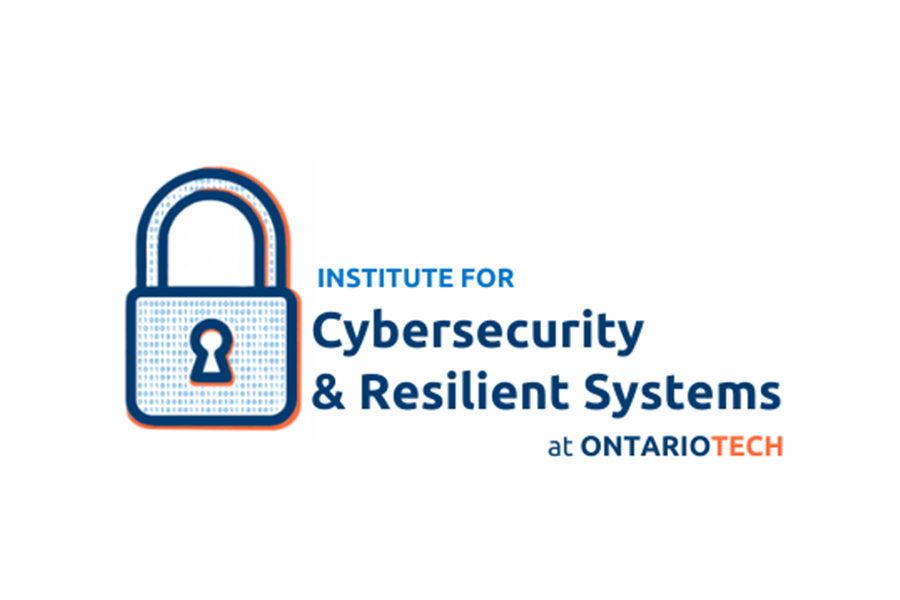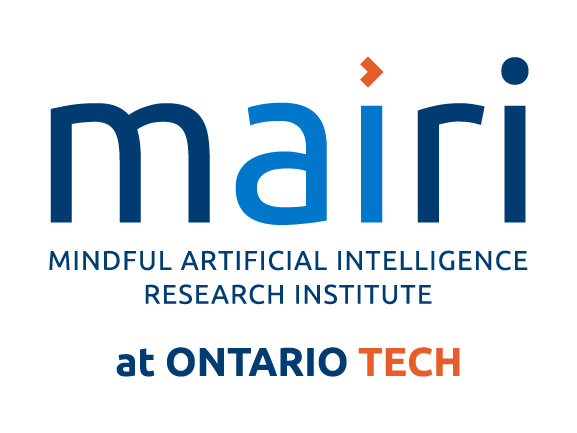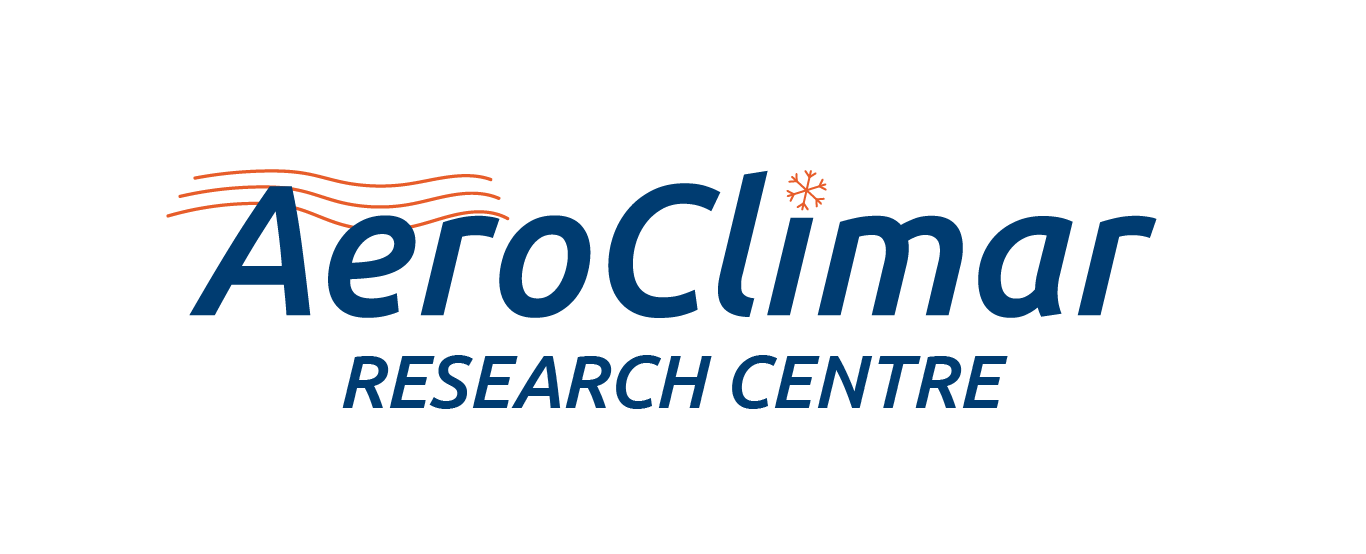Research Institutes, Centres and Groups
Research entities at Ontario Tech University often use cross-Faculty collaboration and, potentially, external partnerships to capitalize on available expertise to address today's multifaceted issues.
Their aim is to enhance or challenge current knowledge with new activities that may lead to new avenues of research. They are formal bodies that must be approved by the university's Board of Governors. These are the currently approved entities.
For information on creating a Research Entity, review Procedures for the Creation of Research Entities.
Research institutes are the largest and most formal of all research entities and conduct research into a number of areas of study. Membership includes faculty members from at least two faculties, as well as significant involvement from other universities, governments, non‐profit organizations and/or businesses. We have strategic research areas and research institutes are an important part of this goal. These are the currently approved research institutes.
Brilliant Energy Institute

The Brilliant Energy Institute (BEI) builds upon the energy research and expertise at Ontario Tech University to meaningfully contribute to Canada’s leadership in the global transition to net zero by 2050, and to strengthen outcomes regionally, provincially and nationally, here at home. Our work supports deep decarbonization, sustainability and equitable access to clean, safe, abundant energy necessary for prosperity, quality of life, and climate resilience in communities across Canada and worldwide.
Digital Life Institute
 The Digital Life Institute is an official research entity. It examines the human and social dimensions of current and projected digital technologies. The Digital Life Institute is a hub for critical analysis and will build upon the work of scholars interested in the social implications of disruptive technological advancement. It will position the social and ethical analysis of technology at the forefront of Ontario Tech University’s role as a leader advancing the strategic research mandate of “technology with a conscience” within the context of national and international research spheres. Its founding partners include University of Minnesota, Shizuoka University, and Temple University.
The Digital Life Institute is an official research entity. It examines the human and social dimensions of current and projected digital technologies. The Digital Life Institute is a hub for critical analysis and will build upon the work of scholars interested in the social implications of disruptive technological advancement. It will position the social and ethical analysis of technology at the forefront of Ontario Tech University’s role as a leader advancing the strategic research mandate of “technology with a conscience” within the context of national and international research spheres. Its founding partners include University of Minnesota, Shizuoka University, and Temple University.
Institute for Cybersecurity & Resilient Systems
 The Faculty of Business and Information Technology has taken a major initiative to develop a cybersecurity research institute, called the Institute for Cyber Security and Resilient Systems (ICSRS), with a mandate to research the intersection of technical, legal, social, economic and ethical implications of privacy, security and trust technologies. The institute will create a focal point within Ontario Tech University, for research, teaching, and outreach in the field of cyber security protection (e.g. critical infrastructure protection, identity management, protection from social engineering, secure software system, password protection) to enhance online and offline cyber protection and innovation. The focus of the Institute will be broadly to examine issues surrounding the use and protection of emerging technologies in both public and private sectors.
The Faculty of Business and Information Technology has taken a major initiative to develop a cybersecurity research institute, called the Institute for Cyber Security and Resilient Systems (ICSRS), with a mandate to research the intersection of technical, legal, social, economic and ethical implications of privacy, security and trust technologies. The institute will create a focal point within Ontario Tech University, for research, teaching, and outreach in the field of cyber security protection (e.g. critical infrastructure protection, identity management, protection from social engineering, secure software system, password protection) to enhance online and offline cyber protection and innovation. The focus of the Institute will be broadly to examine issues surrounding the use and protection of emerging technologies in both public and private sectors. Institute for Disability and Rehabilitation Research
 The Institute for Disability and Rehabilitation Research (IDRR) is an innovative research hub that investigates issues related to disability and rehabilitation from the perspective of the health sciences and the social sciences and humanities. The IDRR, established in 2021 builds on the work conducted at the Centre for Disability Prevention and Rehabilitation (CDPR). The CDPR was created in 2012 through a partnership between the Faculty of Health Sciences at Ontario Tech University and Canadian Memorial Chiropractic College (CMCC). The IDRR is committed to conducting applied research that is relevant to policymakers involved in disability and rehabilitation.
The Institute for Disability and Rehabilitation Research (IDRR) is an innovative research hub that investigates issues related to disability and rehabilitation from the perspective of the health sciences and the social sciences and humanities. The IDRR, established in 2021 builds on the work conducted at the Centre for Disability Prevention and Rehabilitation (CDPR). The CDPR was created in 2012 through a partnership between the Faculty of Health Sciences at Ontario Tech University and Canadian Memorial Chiropractic College (CMCC). The IDRR is committed to conducting applied research that is relevant to policymakers involved in disability and rehabilitation.
Mindful Artificial Intelligence Research Institute
 Ontario Tech is home to the Mindful Artificial Intelligence Research Institute (MAIRI), which champions a vision for a thoughtful, intentional and inclusive approach to AI research and innovation. With a deeply interdisciplinary approach that weaves together expertise spanning the social and the technical, MAIRI brings together more than 50 professors from across all six of Ontario Tech's faculties, as well as strategic partners.
Ontario Tech is home to the Mindful Artificial Intelligence Research Institute (MAIRI), which champions a vision for a thoughtful, intentional and inclusive approach to AI research and innovation. With a deeply interdisciplinary approach that weaves together expertise spanning the social and the technical, MAIRI brings together more than 50 professors from across all six of Ontario Tech's faculties, as well as strategic partners.Research centres are more formal than research groups and have a wider research mandate which may involve university resources. Membership includes faculty researchers from different faculties and disciplines and, perhaps, small‐scale partnerships with other universities, governments, non‐profit organizations or businesses.
Ontario Tech University is embarking in developing strategic research areas and research centres are an important part of this goal. Below are the currently approved research centres.
Centre on Hate, Bias and Extremism

The focus of the Centre on Hate, Bias and Extremism is to explore the ways in which hate, bias and extremism challenge values of inclusion and equity, along lines of race, ethnicity, religion, gender, sexual orientation, disability and other relevant status characteristics, both singly and interactively. It recognizes the historical continuities that underlie contemporary patterns of discrimination, exclusion and violence directed toward those who are targeted.
Contact information:
Barbara Perry, PhD
Professor, Faculty of Social Science and Humanities
Director, Centre on Hate, Bias and Extremism
barbara.perry@ontariotechu.ca
Centre for Small Modular Reactors (CSMR)
Contact Information:
Kirk D. Atkinson, PhDAssociate Professor, Faculty of Energy Systems and Nuclear Science
Director, Centre for Small Modular Reactors
kirk.atkinson@ontariotechu.ca
Sienna Senior Living Research Centre for Healthy Aging and Happiness

The Sienna Senior Living Research Centre for Healthy Aging and Happiness will further advance research and innovation in healthy aging at Ontario Tech University, focusing on three priority areas: enhancing resident well-being; empowering people; and driving insights and impact.
Contact Information:
Shilpa Dogra, PhD
Professor, Faculty of Health Sciences (Kinesiology), Ontario Tech University
Scientific Director, Active InnovAging, Sienna Senior Living Research Centre for Healthy Aging and Happiness, Ontario Tech University
Shilpa.Dogra@ontariotechu.ca
Winnie Sun, RN, PhD
Associate Professor, Faculty of Health Sciences (Nursing), Ontario Tech University
Scientific Director, Wellness-Innovations in NeuroAging (WIN), Sienna Senior Living Research Centre for Health Aging and Happiness, Ontario Tech University
Winnie.Sun@ontariotechu.ca
Sienna Senior Living Research Centre
IAEA Collaborating Centre
 On April 22, 2021, the IAEA designated Ontario Tech University as a Collaborating Centre on integrated energy systems with advanced nuclear power reactors including small modular reactors (SMRs) as well as initiatives such as non‑electric applications of nuclear energy. The institution is the first and only in Canada to receive such a designation.
On April 22, 2021, the IAEA designated Ontario Tech University as a Collaborating Centre on integrated energy systems with advanced nuclear power reactors including small modular reactors (SMRs) as well as initiatives such as non‑electric applications of nuclear energy. The institution is the first and only in Canada to receive such a designation.
This partnership involves researching advanced nuclear power technology, such as small modular reactors (SMRs), as well as the non‑electric applications of nuclear energy, such as desalination for producing potable water, hydrogen production or providing heat for industrial processes. In addition, Ontario Tech plans to support IAEA activities to attract more women to nuclear science and engineering by selecting an outstanding graduate student to apply for the IAEA Marie Sklodowska Curie Fellowship Programmed.
Aerodynamic and Climatic Adaptation Research (AeroClimar) Centre
 The Aerodynamic and Climatic Adaptation Research Center aims to bring together a diverse and multidisciplinary community of researchers who are interested in studying the dynamics of flow and its interaction with solid objects across different climatic conditions. By studying these interactions, we can develop adaptive designs for the implementation in several engineering applications to improve their performance, efficiency and safety. Our ultimate goal is to advance scientific knowledge in this field and develop innovative technologies that will transform our future.
The Aerodynamic and Climatic Adaptation Research Center aims to bring together a diverse and multidisciplinary community of researchers who are interested in studying the dynamics of flow and its interaction with solid objects across different climatic conditions. By studying these interactions, we can develop adaptive designs for the implementation in several engineering applications to improve their performance, efficiency and safety. Our ultimate goal is to advance scientific knowledge in this field and develop innovative technologies that will transform our future.
Contact Information:
Atef Mohany, PhD., P.Eng, Fellow of ASME, Fellow of CSMEProfessor and Research Excellence Chair in Structural Integrity, Faculty of Engineering and Applied Science
Director of the Aerodynamics and Climatic Adaptation Research Center
Atef.Mohany@ontariotechu.ca
Ontario Tech University is embarking in developing strategic research areas. Joint research centres support that goal by engaging in official agreements with external entities to focus on and promote training and research on a global scale. Below are the current joint research centres:
Joint Research Centre in AI for Health and Wellness
 The Joint Research Centre in AI for Health and Wellness is a unique collaborative research centre between Ontario Tech University and the University of Technology Sydney, Australia. Nowhere else in the world exists a similar innovative advanced prototyping and simulation environment to support next-generation health and wellness solutions. In addition to exciting, new research opportunities, the centre opens vast potential for students at the undergraduate and graduate level.
The Joint Research Centre in AI for Health and Wellness is a unique collaborative research centre between Ontario Tech University and the University of Technology Sydney, Australia. Nowhere else in the world exists a similar innovative advanced prototyping and simulation environment to support next-generation health and wellness solutions. In addition to exciting, new research opportunities, the centre opens vast potential for students at the undergraduate and graduate level.
Contact information:
Carolyn McGregor AM, PhD, SMIEEE
Professor, Faculty of Business and IT
Director, Joint Research Centre in AI for Health and Wellness
Research Excellence Chair in Health Informatics
Canada Research Chair (Alumni) in Health Informatics
carolyn.mcgregor@ontariotechu.ca
Joint Research Centre in AI for Health and Wellness CFI Navigator profile
Advancement for Dementia Care Centre (ADCC)
 Dementia, in its many forms, is a critical health-care issue in Canada that affects patients, families and caregivers in profound ways. A 2022 study by the Alzheimer Society of Canada indicates more than 600,000 Canadians are affected by such progressive symptoms as cognitive decline, memory loss, changes in mood or behaviour, or difficulty with problem solving. Ontario Tech University and the Ontario Shores Centre for Mental Health Sciences have a robust legacy of working together on issues related to mental wellness. On Wednesday, November 9, 2022, the two institutions announced the launch of the Advancement for Dementia Care Centre, a vital new community-based partnership aimed at uncovering solutions to improve the quality of life of patients and caregivers through innovation in research and deployment of new technologies.
Dementia, in its many forms, is a critical health-care issue in Canada that affects patients, families and caregivers in profound ways. A 2022 study by the Alzheimer Society of Canada indicates more than 600,000 Canadians are affected by such progressive symptoms as cognitive decline, memory loss, changes in mood or behaviour, or difficulty with problem solving. Ontario Tech University and the Ontario Shores Centre for Mental Health Sciences have a robust legacy of working together on issues related to mental wellness. On Wednesday, November 9, 2022, the two institutions announced the launch of the Advancement for Dementia Care Centre, a vital new community-based partnership aimed at uncovering solutions to improve the quality of life of patients and caregivers through innovation in research and deployment of new technologies.
Ontario Tech University is embarking in developing strategic research areas and research groups are an important part of this goal.
Aerodynamics and Energy Research Group (AER)
- Martin Agelin-Chaab, PhD, PEng
Associate Professor, Faculty of Engineering and Applied Science
Advanced Networking Technology and Security (ANTS) Research lab
-
Shahram Heydari, PhDAssociate Professor, Faculty of Business and IT
-
Richard Pazzi, PhDAssociate Professor, Faculty of Business and IT
richard.pazzi@ontariotechu.ca
- Khalil El-Khatib, PhD
Professor, Faculty of Business and IT
khalil.el-khatib@ontariotechu.ca
ANTS Research Lab
Biomolecular Research Group
- Denina Simmons, PhD
Assistant Professor, Faculty of Science
Canada Research Chair (Tier II)
Business Analytics & AI Research Group
- Salma Karray, PhD Professor and Associate Dean of Research Faculty of Business and IT salma.karray@ontariotechu.ca
Business Analytics & AI Research Group
Database Research Group
- Ken Pu, PhD Associate Professor, Faculty of Science ken.pu@ontariotechu.ca
Forensic Science Research Group
- Helene Leblanc, PhD
Associate Professor, Faculty of Science
- Theresa Stotesbury, PhD Assistant Professor, Faculty of Science theresa.stotesbury@ontariotechu.ca
MaxSIMhealth Research Group
- Adam Dubrowski, PhD (Lead)
Professor, Faculty of Health Sciences
Canada Research Chair in Health-Care Simulation
- Bill Kapralos, PhD
Associate Professor, Faculty of Business and IT
khalil.el-khatib@ontariotechu.ca - Alvaro Quevedo, PhD
Assistant Professor, Faculty of Business and IT
- Sayyed Ali Hosseini, PhD Assistant Professor, Faculty of Engineering and Applied Science sayyedali.hosseini@ontariotechu.ca
Power Electronics and Drives Applications Lab (PEDAL)
- Mohamed Z. Youssef, PhD, PEng, SMIEEE Associate Professor, Faculty of Engineering and Applied Science mohamed.youssef@ontariotechu.ca
Public, Active, Clean and Equitable (PACE) Mobility Group
- Shilpa Dogra, PhD
Associate Professor, Faculty of Engineering of Health Sciences
- Daniel Hoornweg, PhD
Associate Professor, Faculty of Engineering of Applied Sciences
- Mohamed El-Darieby, PhD
Associate Professor, Faculty of Engineering of Applied Sciences
- Meghann Lloyd, PhD
Associate Professor, Faculty of Health Sciences
- Peter Stoett, PhD Dean, Faculty of Social Sciences and Humanities peter.stoett@ontariotechu.ca
Smart Transportation Electrification and Energy Research Group (STEER)
- Sheldon Williams, PhD Associate Professor, Faculty of Engineering and Applied Science Canada Research Chair in Electric Energy Storage Systems for Transportation Electrification sheldon.williamson@ontariotechu.ca
Sport and Phsyical Activity Research Collaborative
- Meghann Lloyd, PhD
Associate Professor, Faculty of Health Sciences
meghann.lloyd@ontariotechu.ca - Nick Wattie, PhD Associate Professor, Faculty of Health Sciences nick.wattie@ontariotechu.ca
Youth Research Group
- Carla Cesaroni, PhD Professor, Faculty of Social Sciences and Humanities carla.cesaroni@ontariotechu.ca
